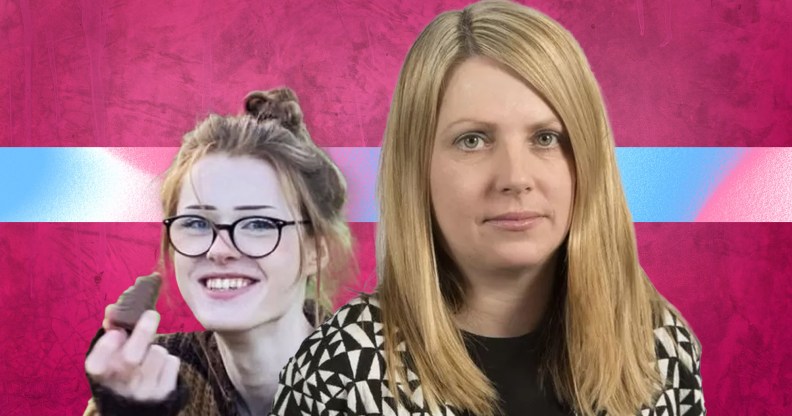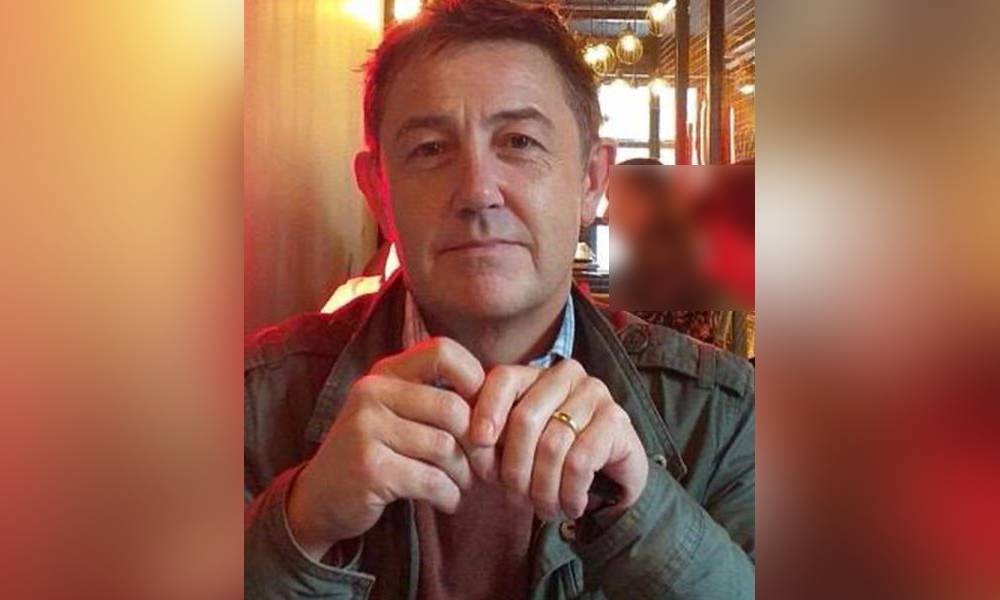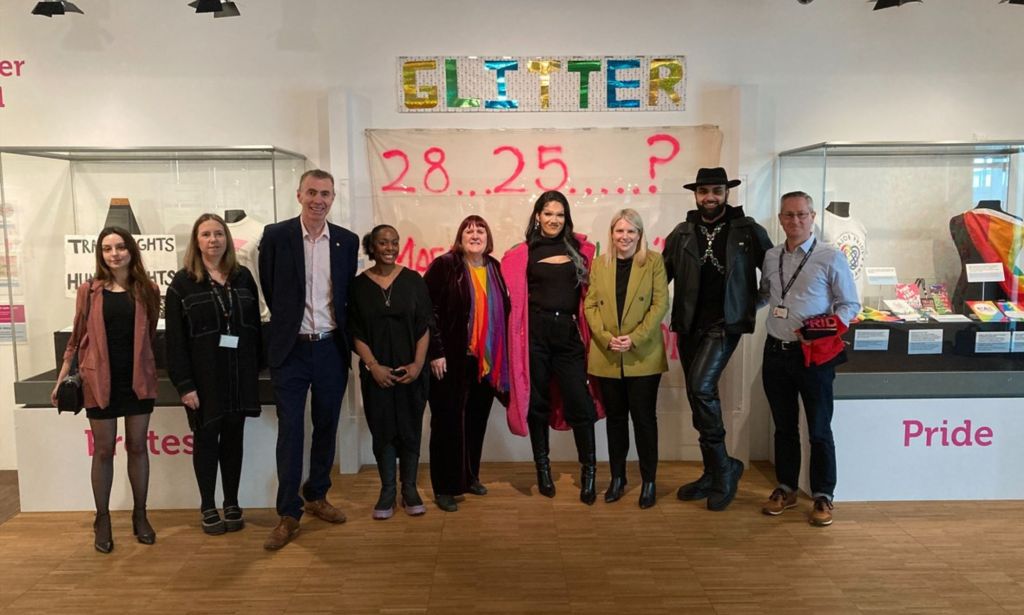Brianna Ghey: Trans girl’s tragic killing should be ‘wake up call’ to politicians, minister says

Hannah Blythn has said Brianna Ghey’s murder should be a ‘wake up call’ for politicians in the UK. (Credit: Supplied / Welsh Government)
Hannah Blythyn, the minister responsible for Wales’s ambitious LGBTQ+ action plan, says the murder of Brianna Ghey is a “wake up call” for politicians committed to LGBTQ+ rights.
On the 11 February, trans teenager Brianna Ghey was stabbed to death in a park in Warrington, England. Two teens have been charged with her murder and Cheshire Police say they have not ruled out the possibility that the killing was a hate crime.
The Welsh government launched its LGBTQ+ Action Plan in early February 2023, which aims to make Wales the safest place in Europe to be LGBTQ+, including making things easier for trans people to legally change their gender.
When questioned about the safety of trans people in the UK in light of Brianna Ghey’s murder, Blythyn – the deputy minister for social partnerships in Wales – says it’s a reminder for politicians and people in power to do better.
“My heart goes out to Brianna and all her family and friends,” she says.
“I think to me, for other people in public life, it’s a wake up call. It’s a wake up call to demonstrate that actually we need to do better in terms of how we talk, and how we approach things, as our words have impact on young trans people.
“It’s a stark reminder that whilst we talk about how far we’ve come in the struggle for LGBTQ+ rights, there is still an immense amount of work to do.”
For Hannah, constant attacks on trans people in the media and on social media are reminiscent of past campaigns against queer people.
“A lot of what we’ve heard around the toxicity of trans rights in particular has very shocking echoes of the abuse that was levelled at the gay community during the AIDS epidemic in the 1980s,” she adds.
“I think we need to be clear – especially during LGBT History Month – we do not want to see history repeat itself when we should learn lessons from the past.”
‘We need to do better’
One of the main points of Wales’ new LGBTQ+ Action Plan is to ensure support is given to young LGBTQ+ people who have been – and continue to be – bullied and face hate for who they are. Other points include tackling online anti-LGBTQ+ hate and continuing to invest in hate crime prevention programmes across Wales.
In recent years, the UK has seen a worrying rise in anti-LGBTQ+ hate crime, and Wales is no exception.
On the 22 January in Cardiff, local drag queen CC Quinn was found dead in an alley way in the middle of the city after leaving a club. A 50-year-old was arrested on suspicion of manslaughter and was later released on police bail.
In July 2021, Cardiff was rocked from the shocking murder of Gary Jenkins. The bisexual dad-of-two was brutally beaten in Bute Park in the centre of the city, succumbing to his injuries shortly after in hospital.

“It’s abhorrent what happened to Dr Gary Jenkins and, as a member of the LGBTQ+ community myself, I understand why people feel afraid,” Blythyn explains.
“Like many others I went to the vigil in his memory. We want to create a Wales where people like me don’t have to wonder whether it’s okay to hold your partner’s hand in public.
“Snide remarks that often lead to violence need to be consigned to the dustbin of history where they belong.”
Hannah says that a key part of Wales’ LGBTQ+ action plan is to improve the relationship and trust between the queer people and local police.
“I think it’s really important that we talk about what constitutes a hate crime and the different forms it can take. We need to do everything to stamp out hate crime.”

Confident that Wales’ plans to become the friendliest nation in Europe for the LGBTQ+ community are perfectly realistic she stands committed to the 46 hopeful actions its government has outlined.
“We’re very clear in Welsh government that trans men are men and trans women are women, and that trans rights are human rights and non-binary identities are valid,” she says.
“We need to be doing what we can to protect the trans community in treating them with dignity and not seeking to debate and dehumanise.”
She also insists that Wales will seek to make obtaining a gender recognition certificate easier for trans people in Wales – similar to reforms Scotland tried to pass, but were ultimately blocked by the UK government.
It has already stated it will impose identical blocks on attempts to do the same in Wales.
“Commitments in the action plan will attempt to devolve the powers that would enable us to adjust the gender recognition act in Wales,” she continues.
“It’s also a commitment from the Welsh government to do all we can to support the trans community in Wales as part of our cooperation agreement with Plaid Cymru.”
Blythyn says she, and other politicians, believe even if devolved powers cannot be obtained, the practical differences they can make are more important for the LGBTQ+ community and are bigger than a “piece of paper.”
‘It’s all about the practical differences we can make’
Paying tribute to Nicola Sturgeon, who resigned on the 15 February for her work as an LGBTQ+ ally, Blythyn reiterated Wales’ commitment to try and obtain devolution powers in order to meet all of its outlined goals in the plan that are inclusive of the trans communities.
“It’s all about the practical differences we can make, and some of them are more challenging than others,” she explains.
“It’s not about a piece of paper that sits on a shelf. Yes, some of these actions will take much longer than others, but I’m keen to set up things that we’d already managed to progress such as transgender guidance for schools, working with Pride Cymru and working with smaller, private organisations across Wales,” she adds.
And while some of the ambitions Wales have would need a significant change in how devolved powers in the UK work, she’s also confident the nation can make notable change as things are currently run.
“I recognise there are actions in the plan that relate to us having to seek further powers, but the vast majority of actions within that plan we do have power to make a difference,” she adds.
“There are things that are going to me more challenging when we have to seek those further powers, but we’re committed to doing everything we can within the powers we have now.”
How did this story make you feel?

